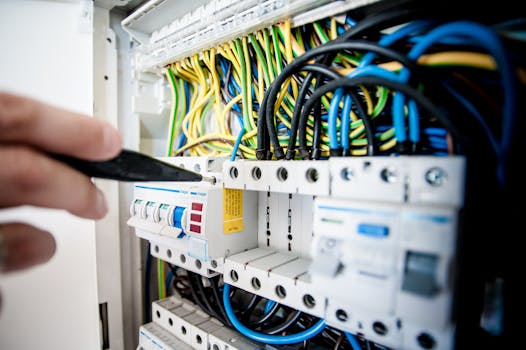Improve Thermal and Sound Insulation for a More Comfortable and Economical Environment
In today’s fast-paced world, creating a comfortable living and working environment is more important than ever. One of the most effective ways to achieve this is through improved thermal and sound insulation. Not only does this enhance comfort, but it also leads to significant economic benefits. This article explores the importance of insulation, the various types available, and practical steps to enhance both thermal and sound insulation in your space.
The Importance of Insulation
Insulation plays a crucial role in maintaining a comfortable indoor climate. It helps regulate temperature, reduces energy consumption, and minimizes noise pollution. Here are some key benefits of effective insulation:
- Energy Efficiency: Proper insulation reduces the need for heating and cooling, leading to lower energy bills.
- Comfort: Insulation helps maintain a consistent indoor temperature, making spaces more comfortable year-round.
- Noise Reduction: Good insulation can significantly decrease sound transmission, creating a quieter environment.
- Environmental Impact: By reducing energy consumption, insulation contributes to lower carbon emissions.
Types of Insulation
There are several types of insulation materials available, each with its unique properties and applications. Understanding these can help you choose the right solution for your needs:
- Fiberglass Insulation: One of the most common types, fiberglass is made from fine glass fibers and is effective for both thermal and sound insulation.
- Foam Board Insulation: Rigid panels made from polystyrene or polyisocyanurate, foam boards provide excellent thermal resistance and are often used in walls and roofs.
- Spray Foam Insulation: This type expands on application, filling gaps and cracks, making it ideal for irregular spaces.
- Cellulose Insulation: Made from recycled paper products, cellulose is an eco-friendly option that offers good thermal performance.
- Mineral Wool Insulation: Also known as rock wool, this material is fire-resistant and provides excellent soundproofing capabilities.
Enhancing Thermal Insulation
Improving thermal insulation in your home or office can be achieved through various methods. Here are some effective strategies:
- Seal Gaps and Cracks: Use caulk or weatherstripping to seal any gaps around windows, doors, and other openings to prevent heat loss.
- Upgrade Windows: Consider double or triple-glazed windows, which provide better insulation than single-pane options.
- Insulate Attics and Basements: These areas are often overlooked but can significantly impact overall insulation. Adding insulation here can reduce energy costs.
- Use Thermal Curtains: Heavy curtains can help retain heat during winter and keep spaces cool in summer.
Improving Sound Insulation
Sound insulation is equally important for creating a peaceful environment. Here are some methods to enhance soundproofing:
- Add Acoustic Panels: These panels can be installed on walls to absorb sound and reduce echo.
- Use Rugs and Carpets: Soft flooring materials can help dampen sound transmission between floors.
- Install Soundproof Drywall: This specialized drywall contains sound-dampening materials that can significantly reduce noise levels.
- Consider Soundproof Doors: Solid-core doors provide better sound insulation compared to hollow-core doors.
Case Studies and Statistics
Numerous studies have shown the benefits of improved insulation. For instance, a study by the U.S. Department of Energy found that homeowners can save up to 20% on heating and cooling costs by properly insulating their homes. Additionally, a case study in a commercial building showed that implementing sound insulation measures led to a 30% increase in employee productivity due to reduced noise distractions.
Conclusion
Improving thermal and sound insulation is a vital step towards creating a more comfortable and economical environment. By understanding the types of insulation available and implementing effective strategies, individuals and businesses can enjoy significant benefits, including reduced energy costs, enhanced comfort, and a quieter atmosphere. Investing in insulation not only contributes to personal well-being but also promotes environmental sustainability. As we move forward, prioritizing insulation will be essential for a more efficient and enjoyable living and working experience.
